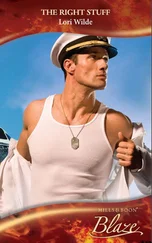Tom Wolfe - The Right Stuff
Здесь есть возможность читать онлайн «Tom Wolfe - The Right Stuff» весь текст электронной книги совершенно бесплатно (целиком полную версию без сокращений). В некоторых случаях можно слушать аудио, скачать через торрент в формате fb2 и присутствует краткое содержание. Жанр: Современная проза, на английском языке. Описание произведения, (предисловие) а так же отзывы посетителей доступны на портале библиотеки ЛибКат.
- Название:The Right Stuff
- Автор:
- Жанр:
- Год:неизвестен
- ISBN:нет данных
- Рейтинг книги:3 / 5. Голосов: 1
-
Избранное:Добавить в избранное
- Отзывы:
-
Ваша оценка:
- 60
- 1
- 2
- 3
- 4
- 5
The Right Stuff: краткое содержание, описание и аннотация
Предлагаем к чтению аннотацию, описание, краткое содержание или предисловие (зависит от того, что написал сам автор книги «The Right Stuff»). Если вы не нашли необходимую информацию о книге — напишите в комментариях, мы постараемся отыскать её.
The Right Stuff — читать онлайн бесплатно полную книгу (весь текст) целиком
Ниже представлен текст книги, разбитый по страницам. Система сохранения места последней прочитанной страницы, позволяет с удобством читать онлайн бесплатно книгу «The Right Stuff», без необходимости каждый раз заново искать на чём Вы остановились. Поставьте закладку, и сможете в любой момент перейти на страницу, на которой закончили чтение.
Интервал:
Закладка:
At some point in the madhouse scene out back of Hangar S, a photograph was taken in which Ham was either grinning or had on a grimace that looked like a grin in the picture. Naturally, this was the picture that went out over the wire services and was printed in newspapers throughout America. Such was the response of the happy chimpanzee to being the first ape in outer space… A fat happy grin… Such was the perfection with which the Proper Gent observed the proprieties.
Well, there were some big grins, all right, up in the high desert, at Edwards, among the brethren. Here were some men who had something to smile about. Now the whole business of Project Mercury was no doubt clear to everyone. No one, not even in the general public, could possibly miss the point now. It was that obvious. The first flight—the coveted first flight of the new bird —that full-bore first flight that every test pilot strove for—had just been made in Project Mercury. And the test pilot was an ape ! An ape made the first flight! "A college-trained chimpanzee"!—to use the very words that they had heard Astronaut Deke Slayton himself use before the Society of Experimental Test Pilots. And the ape had performed flawlessly, done as well as any man could possibly have done—for there was nothing for a man to do in the Mercury system except push a few perfunctory buttons and switches. This any college-trained chimpanzee could do also! He hadn't missed a beat! Give him a signal and he'll toggle you a switch! To see the point—and surely all the world now saw the point—you only had to imagine sending an ape up for the first flight of the X-15. You would have a twenty-million-dollar hole in the ground and a pulverized ape. But in Project Mercury an ape was fine! First-rate! In fact… the ape was an astronaut! He was the first one! Perhaps the female ape who backed him up deserved the next flight. Let her fly, goddamn it! She has earned it as much as the seven human ones—she's been through the same training!… and so forth and so on… The brethren let their beer-call brains soar. Perhaps the ape would go to the White House and get a medal. (Why not!) Perhaps the ape would address the September meeting of the Society of Experimental Test Pilots in Los Angeles. (Why not!—another astronaut had done it, Deke Slayton, without flying at all!) Oh, it was a laugh and a half, the whole thing. For now the truth was out—it was obvious in a way that no one in the world could miss.
And in the days that followed, the first days of February 1961, the True Brothers waited for this revelation to sweep across the press and the public and the Kennedy Administration and the military brass. But, strange to say. there was not even one such sign anywhere. In fact, they could begin to see signs of something quite the opposite. It was incredible, but the world was now full of people who were saying:
"My God, do you mean there are men brave enough to try what the ape has just gone through?"
John Glenn found himself in a ridiculous situation. It was nothing less than a charade. He had to pretend to be in the running for the first flight—and then he would read in the newspapers that he was the front runner. Since he had always been the fair-haired boy of the seven, that was the way it kept coming out. He and Gus Grissom had to tag along with Shepard through the training grind to keep up the fiction that the decision had not yet been made. In fact, Shepard was now the king—and Al knew how to act like the king, His Majesty the Prime Pilot—and Glenn was just a spear carrier.
Yet the charade, which Gilruth himself insisted on, also offered Glenn one last chance. No more than a handful of people knew that Shepard had been chosen for the first flight. Therefore, it was not too late to change the decision, to rectify what Glenn viewed as the incredible and outrageous business of the peer vote. But if this meant going over someone's head in one way or another… well, in the military it was a grave error, a serious breach of all that was holy, to go over the head of a superior unless (1) it was a critical situation and you were in the right and (2) your brash move worked (i.e., those at the top backed you up). On the other hand, there was nothing in the Presbyterian faith, another code Glenn knew very well, that said you had to stand around shy and obedient while the Pharisees waffled and oscillated, making imaginary snowballs. And was not NASA a civilian agency? (God knew it was not run like the Marines.) Glenn seemed to favor the Presbyterian course. He began talking to people in the hierarchy, asking what they thought of the decision.
He did not argue that he should be the one who was chosen, or not in so many words. He argued that the choice could not be made from a narrow perspective. America's first astronaut would not be merely a test pilot with a mission to carry out; he would be a historic representative of America, and his character would be viewed in that light. If he did not measure up to that test, it would be unfortunate not only for the space program but for the nation.
The new administrator of NASA, appointed by Kennedy to replace T. Keith Glennan, was James E. Webb, a former oil company executive and a political grand master in the Democratic Party. Webb was of a valuable breed well known in Washington: the off-the-ballot politician. The off-the-ballot politician usually looked like a politician, talked like a politician, walked like a politician, loved to mix with politicians, moved and shook with politicians, winked with politicians, sighed ruefully with them. He was the sort of man of whom a congressman or a senator was likely to say: "He speaks my language." The ablest and most distinguished of the off-the-ballot politicians, like Webb, were likely to end up with high-level appointments. Webb had been Director of the Bureau of the Budget and Undersecretary of State under Truman. He was also a great friend of Lyndon Johnson and Senator Robert Kerr of Oklahoma, who was chairman of the Senate Committee on Aeronautical and Space Sciences. For six years Webb had been head of a subsidiary of the Kerr family's oil empire. Webb was the sort of man whom corporations doing work for the government, such as McDonnell Aircraft and Sperry Gyroscope, liked to have on their boards of directors. He looked the part. He had big smooth jowls like Glennan's and even better hair, wavy, thick, as if every strand were nailed in, and dark, but graying smartly, and combed straight back in the manner favored by all serious men of the day. He had the sort of record that made him an ideal appointee to commissions like the Municipal Manpower Commission, which had occupied much of his time since 1959. He was known as a man who could make bureaucracies run. He was used to corner offices with terrific views. He was no fool. What would he have made of this business of Astronaut Glenn's dissatisfaction with the selection of Astronaut Shepard for the first Mercury flight? Gilruth said he had made the decision himself; and it was based on a wide range of criteria, many of them quite objective. Shepard had performed best on the procedures trainer, for example. When Gilruth considered all criteria, and not just the peer vote, Shepard ranked first and Glenn ranked second. So what was Glenn objecting to? It was a bit baffling. But one thing was sure: Webb was not likely to start his tenure as administrator of NASA by taking a flying leap into some incomprehensible dogfight among the seven bravest lads in the history of the United States. Astronaut Glenn's objections—and his last chance to become the world's first man in space—simply sank without a bubble one day, and that was that.
By now, late February of 1961, Glenn was not the only supremely miffed astronaut. Gilruth had finally published the names of the men who would make the first three flights—Glenn, Grissom, and Shepard, always in alphabetical order—implying that no decision had been made as to which of them would make the first flight, due to take place within ninety days. So Life ran a big story with pictures of Glenn, Grissom, and Shepard on the cover with the headline: THE FIRST THREE. Life was really excited about the whole thing. They tried to get NASA to label the first three "the Gold Team" and the rest of them "the Red Team." The Gold Team and the Red Team. Jesus! The picture possibilities alone were fabulous.
Читать дальшеИнтервал:
Закладка:
Похожие книги на «The Right Stuff»
Представляем Вашему вниманию похожие книги на «The Right Stuff» списком для выбора. Мы отобрали схожую по названию и смыслу литературу в надежде предоставить читателям больше вариантов отыскать новые, интересные, ещё непрочитанные произведения.
Обсуждение, отзывы о книге «The Right Stuff» и просто собственные мнения читателей. Оставьте ваши комментарии, напишите, что Вы думаете о произведении, его смысле или главных героях. Укажите что конкретно понравилось, а что нет, и почему Вы так считаете.











